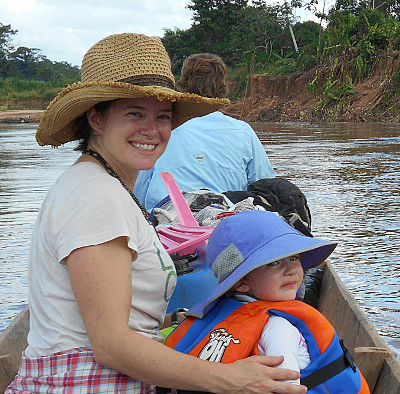About the topic
Bio
About the topic
Two thirds of adults in the US are overweight or obese, and rates among women and children continue to rise. Modifying behaviors that improve weight management and health, like physical activity and eating well, are critical for preventing and treating obesity and associated chronic diseases. Unfortunately, scientists aren’t very good at helping people successfully change behavior, and are even less good at developing strategies that help people to maintain healthy behaviors over the long-term.
In this café, we’ll focus on physical activity from a novel perspective that is grounded in evolutionary theory, and incorporates health and social psychology, anthropological fieldwork, and behavioral endocrinology. This approach can lead to new ways of thinking about the factors that make behaving in healthy ways, as well as preventing and treating obesity, more difficult. This theoretical framework suggests that physical exertion entails costs and benefits that have been shaped by natural selection, are sex-specific, change over the course of the lifespan, and vary according to environmental cues of resource availability and predictability, and mortality risks. Annie will present her fieldwork that applies this framework to help explain decreases in physical activity and increase in sedentary behaviors during adolescence. We’ll discuss other relevant research on physical activity in men and women that can be interpreted from this framework in meaningful ways. You won’t walk away with a PaleoExercise prescription, but you may walk away with relevant strategies to improve your physical activity and health.
Bio
 Ann E (Annie) Caldwell is a Postdoctoral Fellow at the University of Colorado, Anschutz Medical Campus. She received her PhD in evolutionary psychology with distinction from the University of New Mexico in 2013.
Ann E (Annie) Caldwell is a Postdoctoral Fellow at the University of Colorado, Anschutz Medical Campus. She received her PhD in evolutionary psychology with distinction from the University of New Mexico in 2013.
Her research also spans evolutionary anthropology and biology, as well as health psychology to integrate the complex set of factors that influences physical activity and obesity in humans.
She conducts fieldwork in the Bolivian Amazon among the Tsimané, a small-scale indigenous population residing in the Amazon basin in lowland Bolivia. She is passionate about considering human evolution and evolutionary theory to develop novel approaches to increase physical activity and reduce chronic disease risk.
